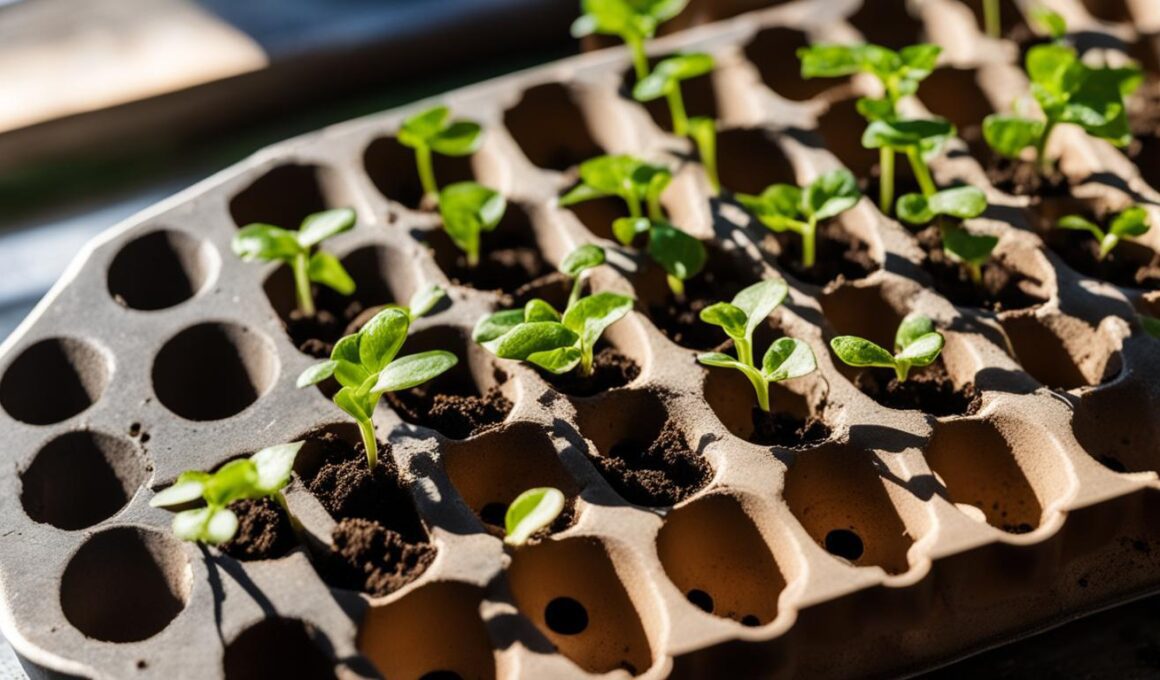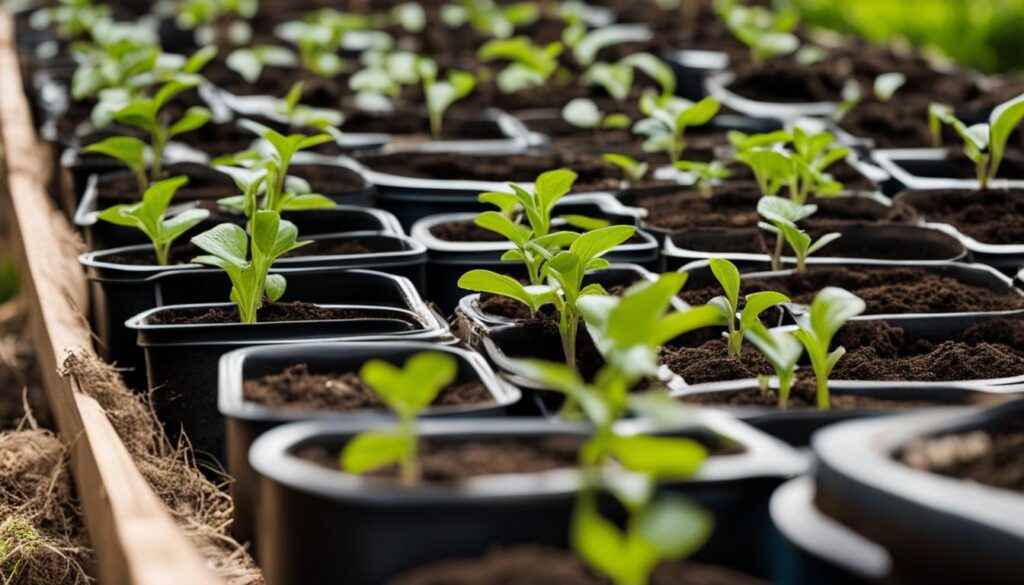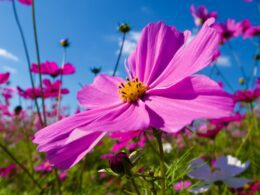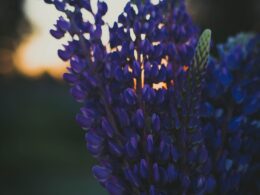Are you ready to start your own garden but don’t want to spend a fortune on seed starting containers? Look no further! Starting seeds in egg cartons is a fantastic and eco-friendly way to kickstart your gardening journey. Not only is it a cost-effective method, but it also promotes sustainable and eco-friendly planting practices.
By repurposing household waste, such as egg cartons, you can create perfect little cups for your seedlings. It’s a win-win situation!
But how do you get started? It’s simple. Just collect your used egg cartons, make some drainage holes in the cups, fill them halfway with a seed starting mix, and then plant two or three seeds in each cup. Cover them with soil and water them regularly until the seedlings reach a height of about half an inch.
Once your seedlings have grown their roots and reach the bottom of the tray, you can easily transplant them into your garden. It’s that easy!
Starting seeds in egg cartons is not only easy and convenient but also an excellent way to cultivate a variety of plants, including vegetables, flowers, and herbs. So why wait? Get your hands dirty and start your garden with this simple and sustainable method!
Alternatives to Egg Cartons for Seed Starting
While egg cartons can be used for seed starting, there are other containers that may provide better results. Here are some alternatives to consider:
- Soil Blocks: Considered the best option, soil blocks provide ample nutrients and allow for natural air pruning.
- Peat pots: Peat pots and cow pots are good alternatives that prevent seedlings from becoming root-bound and do not involve disposable plastics.
- Cell trays: Cell trays and 6-packs can be used, but seedlings can quickly become root-bound, so it’s important to transplant them as soon as possible.
- Yogurt cups: Yogurt cups or plastic cups with drainage holes are another option, but make sure to ensure proper drainage by drilling enough holes.
- Toilet paper rolls: Toilet paper rolls cut into one-inch pieces can serve as effective seed starting containers, but they require careful watering to prevent mold and should only be used for quick transplants.
When choosing seed starting containers, it’s important to be creative and resourceful to ensure the health and success of your seedlings. Explore these alternatives and find the container that works best for your garden.
Conclusion
Starting seeds in egg cartons is a practical and sustainable method for kickstarting your garden. By repurposing household waste like egg cartons, you can save money and contribute to waste reduction. However, it’s important to note that egg cartons may not provide the ideal conditions for seedlings to thrive. Fortunately, there are plenty of alternative containers available that can yield better results.
Consider using soil blocks or peat pots for seed starting. These options offer more space and nutrients for healthy root development, ensuring strong and robust seedlings. Additionally, cell trays and yogurt cups with drainage holes can also serve as viable alternatives. Just remember to drill enough holes in the cups to guarantee proper drainage.
Once your seedlings have outgrown their original containers, it’s crucial to transplant them into the garden. This step ensures their continued growth and success. Whether you choose egg cartons, soil blocks, or any other container, the goal is to provide your seedlings with the best possible environment to thrive.
So embrace sustainable gardening practices, explore different cost-effective methods, and follow these seed starting tips. With a little care and creativity, you’ll be rewarded with healthy and flourishing plants, and a bountiful harvest in your garden!
Can Blackberry Seeds Be Used for Starting Plants in Egg Cartons?
Yes, you can discover blackberry seed facts to learn that they can indeed be used for starting plants in egg cartons. Blackberry seeds can be started indoors and then transplanted outside once the weather warms up. The seeds should be planted in a well-draining soil mix and kept moist for successful germination.










